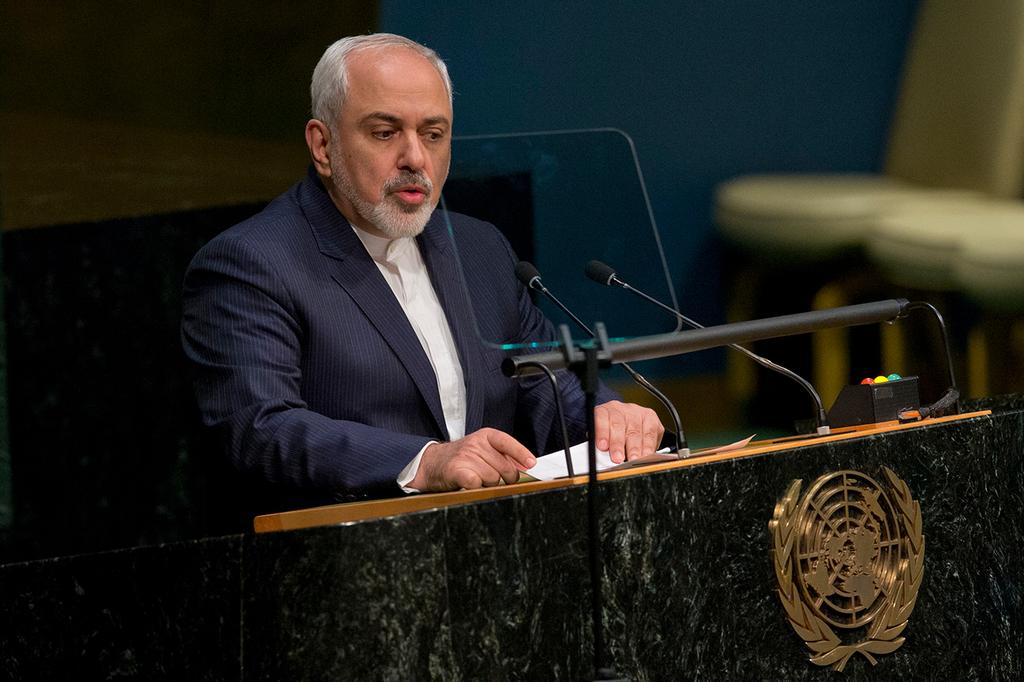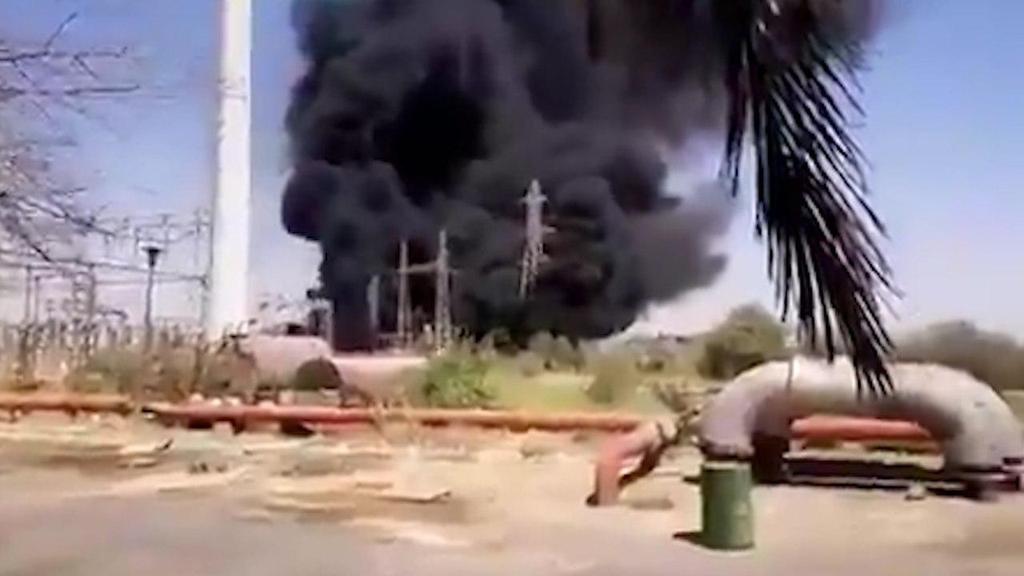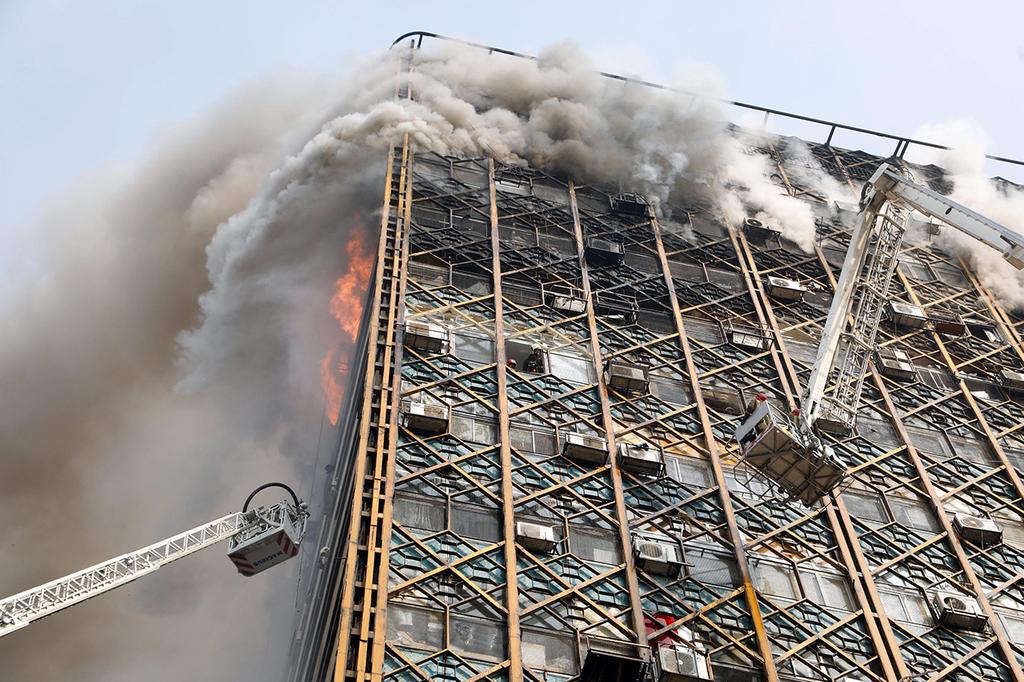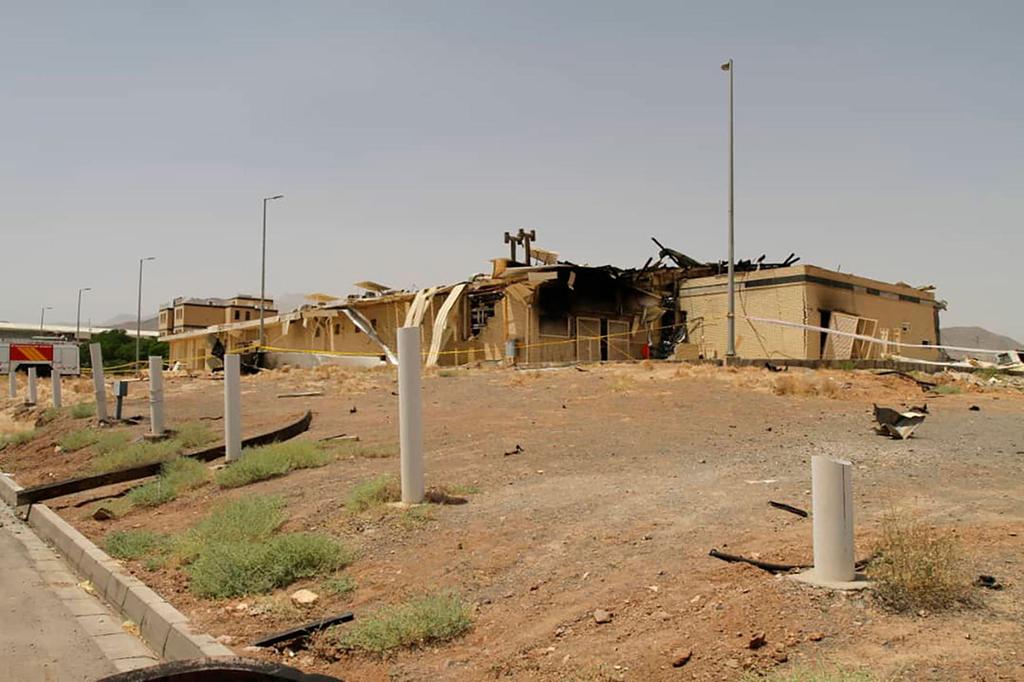Getting your Trinity Audio player ready...
The series of unusual incidents in Iran over the past week has proven against the weakness of the regime in Tehran in the face of serious challenges at home and abroad, chief among them the uncompromising diplomatic pressure of the U.S., its economic crisis and the coronavirus epidemic, which has so far claimed the lives of more than 11,000 Iranians.
Even though it is tempting to attribute these events to foreign sabotage, we must practice caution before grouping all these incidents into one category.
An explosion at the nuclear plant in Nataz is not on the same magnitude as a blast at an x-ray lab in the heart of Tehran, just as an incident at a rocket research facility in Parchin is not the same as a wiring fault at a power station in Ahvaz.
Not every explosion or fire in Tehran is the result of foreign subterfuge. The critical condition of Iran's infrastructure is widely known, add to that lackluster maintenance, negligent management and human omissions.
The head of Tehran's city council lately admitted that out of 33,000 buildings categorized as unsafe following the collapse of the Plasco skyscraper during a 2017 fire that killed dozens of fire fighters, only 3,000 have been sufficiently repaired to meet safety protocols.
Another Iranian official said none of Tehran's 50 hospitals meet safety standards.
And yet, even if all these incidents are unconnected, this unusual series of events only emphasize the lack of safety within the Islamic Republic.
There has been severe criticism on Iranian social media in recent days over the regime's failures and its inability to guarantee the safety of buildings and infrastructure in the face of technical or intentional sabotage.
Iran's leaders are surely very troubled by these spate of accidents, especially the ones in sensitive facilities, and are under growing pressure to answer to public opinion.
External threats have forced the Islamic Republic in recent years to consolidate its fight to stamp out domestic dissent. It is fair to assume that these incidents will lead to a further ramping up of oppression against the regime's enemies, both real and fictional. For now, tensions between the Iranian leadership and the West continue to boil.
In June, the UN's International Atomic Energy Agency adopted a resolution, the first of its kind since 2012, criticizing Iran for not letting its inspectors into sites suspected of being part of the Islamic Republic's nuclear project.
At the same time, the U.S. is attempting to convince the UN Security Council to extend the arms embargo against Iran, which is set to expire in October, and threaten to activate the clause within the nuclear agreement letting all signatory nations to automatically reimpose all sanctions lifted against Tehran before the deal.
Iran for its part made it clear that such a move will be answered with an "appropriate response."
4 View gallery


Iranian Foreign Minister Mohammad Javad Zarif speaking at the UN General Council
(Photo: AP)
Radical wings within Iran have also pressured the government to take more proactive steps in retaliation, starting with axing cooperation with the IAEA and even resigning from the Treaty on the Non‑Proliferation of Nuclear Weapons.
Earlier this week, a conservative lawmaker confronted Iranian Foreign Minister Mohammad Javad Zarif, blaming him for the state's diplomatic approach of appeasement and even calling him a "liar."
Even if the latest incidents cannot be connected, and even if most of them are not the result of sabotage, the heightened sense of alert within Iran could lead to increasingly severe actions, despite its leaders unwillingness to do so in the four months leading to the U.S. elections in November.
Dr. Raz Zimmt is a research fellow specializing in Iran at the Institute for National Security Studies at Tel Aviv University




